Quality Engineer
1500+ Quality Engineer Interview Questions and Answers

Asked in Suzuki Motorcycle

Q. Diff between CP/CPk & draw fish bone diagram
CP/CPk measures process capability while fishbone diagram is a root cause analysis tool.
CP/CPk is used to measure the ability of a process to produce products within specification limits
Fishbone diagram is a visual tool used to identify the root cause of a problem
CP is used for a stable process while CPk is used for an unstable process
Fishbone diagram is also known as Ishikawa diagram or cause-and-effect diagram
CP/CPk is a statistical tool while fishbone diagram is a quality ...read more
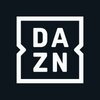
Asked in DAZN

Q. What is the difference between Validation and Verification?
Validation ensures the product meets the customer's needs, while verification ensures the product is built correctly.
Validation is the process of evaluating a product to ensure it meets the customer's requirements and needs.
Verification is the process of evaluating whether a product is built correctly according to the specifications and requirements.
Validation answers the question 'Are we building the right product?' while verification answers 'Are we building the product rig...read more

Q. What are the names of the documents involved in the Production Part Approval Process (PPAP)?
The documents involved in the Production Part Approval Process (PPAP) include the PSW, PFMEA, Control Plan, and others.
Production Part Approval Process (PPAP) documents include PSW (Part Submission Warrant), PFMEA (Process Failure Mode and Effects Analysis), and Control Plan.
Other documents involved in PPAP are Dimensional Results, Material Certifications, and Appearance Approval Report (AAR).
PPAP also includes documents like Design Records, Engineering Change Documents, and ...read more
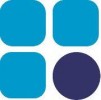
Asked in Zeus Learning

Q. Create a 3-digit password based on the given conditions.
Create a 3 digit password based on given condition.
The condition for the password is not provided.
Without the condition, it is impossible to create a password.
The password should be strong and not easily guessable.
Asked in Malu Group

Q. Ultimate tensile strength it is find that the ratio of breaking load divided by 0.784 into two times wire dia.
The ultimate tensile strength is calculated by dividing the breaking load by 0.784 multiplied by two times the wire diameter.
Ultimate tensile strength is the maximum stress a material can withstand before breaking
Breaking load is the force required to break the material
Wire diameter is the thickness of the wire
The formula for ultimate tensile strength is breaking load / (0.784 x 2 x wire diameter)
This formula is used to determine the strength of materials such as metals, plas...read more

Asked in Tata Projects

Q. What is concrete cover and what are its requirements?
Concrete cover is the thickness of concrete between the surface of embedded reinforcement and the outer surface of the concrete.
It is required to protect the reinforcement from corrosion and fire damage.
The thickness of the concrete cover depends on the type of structure and the environmental conditions.
The minimum concrete cover is specified in the design codes and standards.
For example, in reinforced concrete columns, the minimum concrete cover is 40mm.
In marine structures,...read more
Quality Engineer Jobs

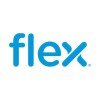
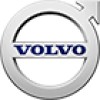

Asked in Subros

Q. What is hardness? Explain briefly.
Hardness is the measure of a material's resistance to indentation or scratching.
Hardness is a property of materials that determines their ability to withstand deformation
It is often measured using tests like the Rockwell, Brinell, or Vickers hardness tests
Hardness can be influenced by factors such as the material's composition, heat treatment, and microstructure
Higher hardness generally indicates greater strength and durability
For example, diamond is one of the hardest materi...read more
Asked in Linit Exports

Q. What should you do to achieve required quality requirements?
To achieve required quality requirements, a quality engineer should focus on process improvement, effective communication, and continuous monitoring.
Identify and understand the quality requirements of the product or service
Develop and implement quality control processes and procedures
Ensure effective communication and collaboration with stakeholders
Monitor and measure quality metrics to identify areas for improvement
Implement corrective actions to address quality issues
Contin...read more
Share interview questions and help millions of jobseekers 🌟

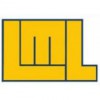
Asked in Lokesh Machines

Q. What is the difference between accuracy and precision?
Accuracy refers to how close a measured value is to the true value, while precision refers to how close the measured values are to each other.
Accuracy is the closeness of a measured value to a standard or known value, while precision is the closeness of two or more measurements to each other.
Accuracy is related to systematic errors, while precision is related to random errors.
For example, hitting the bullseye on a target multiple times in a row would be both accurate and prec...read more
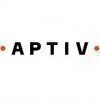
Asked in Aptiv

Q. What is 5 core tool , 7 qc tool , 8 D , why why analysis
Core tools and techniques used in quality engineering include 5 core tools, 7 QC tools, 8D methodology, and the Why-Why analysis.
5 Core Tools: APQP, PPAP, FMEA, MSA, SPC
7 QC Tools: Check sheets, Pareto charts, Cause-and-effect diagrams, Histograms, Scatter diagrams, Control charts, Flowcharts
8D Methodology: Eight disciplines problem solving approach used to identify, correct, and prevent recurring problems
Why-Why Analysis: Technique used to determine the root cause of a probl...read more
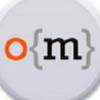
Asked in Orange Mantra

Q. How do you stay agile when balancing enterprise clients’ long-term requirements with rapid mobile/web development cycles?
Balancing enterprise needs with rapid development requires flexibility, communication, and strategic planning.
Prioritize requirements: Use a prioritization framework like MoSCoW (Must have, Should have, Could have, Won't have) to align on key features.
Agile methodologies: Implement Scrum or Kanban to allow for iterative development and regular feedback from clients.
Regular communication: Schedule frequent check-ins with enterprise clients to ensure their long-term goals are b...read more

Asked in Orange Mantra

Q. What steps would you take to understand a client’s business domain before building their custom solution?
Understanding a client's business domain is crucial for developing effective custom solutions tailored to their needs.
Conduct stakeholder interviews to gather insights on their goals and challenges.
Research the industry trends and regulations that impact their business, such as HIPAA in healthcare.
Analyze existing documentation, such as business plans or process maps, to understand workflows.
Engage with end-users to identify pain points and gather requirements directly from t...read more

Asked in Simplex Metal Processors

Q. What is least count? Vernier calipers, micrometre, scale and bewel protector
Least count refers to the smallest measurement increment that an instrument can accurately measure.
Vernier Calipers: The least count is typically 0.02 mm, allowing for precise measurements of small dimensions.
Micrometer: The least count is usually 0.01 mm, ideal for measuring thickness or small diameters with high accuracy.
Scale: The least count can vary, but a standard ruler may have a least count of 1 mm.
Bevel Protector: The least count is often 1 degree, used for measuring...read more
Asked in GHG Reduction Technologies

Q. What are the amendments in ISO 9001:2015?
The amendments in ISO 9001:2015 include a stronger focus on risk-based thinking and a greater emphasis on leadership.
Introduction of the High-Level Structure (HLS) to align with other ISO management system standards
Increased emphasis on leadership and top management commitment
Introduction of risk-based thinking throughout the standard
Enhanced requirements for documented information
Greater emphasis on the context of the organization and interested parties
Introduction of the pr...read more

Asked in Infosys

Q. What is the difference between an Abstract class and an Interface?
Abstract class can have implementation while interface only has method signatures.
Abstract class can have constructors while interface cannot.
A class can implement multiple interfaces but can only inherit from one abstract class.
Abstract class can have non-abstract methods while interface only has method signatures.
Abstract class can have instance variables while interface cannot.
Example of abstract class: public abstract class Shape { public abstract double area(); }
Example ...read more

Asked in Danieli Corus

Q. Effect of changing different elements such as Si, Carbon , Cr etc in grey iron or sg iron on mechanical properties
Changing elements like Si, Carbon, Cr in grey iron or sg iron can significantly impact mechanical properties.
Increasing Silicon content can improve fluidity and machinability but decrease strength
Increasing Carbon content can increase hardness and wear resistance
Adding Chromium can improve corrosion resistance and strength
Changing elements must be carefully balanced to achieve desired mechanical properties
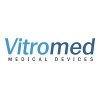
Asked in Vitromed Healthcare

Q. How can you control speed using pressure?
Speed can be controlled by adjusting the pressure of the fluid or gas that powers the system.
Pressure can be increased or decreased to control the speed of a system.
This is commonly used in hydraulic and pneumatic systems.
For example, in a hydraulic system, increasing the pressure of the fluid can increase the speed of a cylinder.
Similarly, in a pneumatic system, increasing the pressure of the gas can increase the speed of a piston.
Proper calibration and monitoring of pressur...read more

Asked in Tlg India

Q. How do you use the 7 QC tools and TQM to control defects?
To control the defect problem, use 7QC tools and TQM.
Identify the problem and gather data using tools like Pareto chart, Ishikawa diagram, etc.
Analyze the data to find the root cause of the problem.
Develop and implement a solution using Total Quality Management principles.
Monitor and control the process to ensure the problem does not recur.
Continuously improve the process to prevent future defects.

Asked in Bridgestone

Q. What is 7 Qc tools , TQM, Problem Solving mathology, 5S , SQC,
The 7 QC tools, TQM, problem-solving methodology, 5S, and SQC are all quality management techniques used to improve processes and products.
7 QC tools include Pareto chart, cause-and-effect diagram, flowchart, histogram, scatter diagram, control chart, and check sheet
TQM is a management approach that focuses on continuous improvement and customer satisfaction
Problem-solving methodology involves identifying, analyzing, and solving problems using a structured approach
5S is a wor...read more

Asked in Proto-D Engineering

Q. What is 8D, and can you explain it in detail?
8D is a problem-solving methodology used to identify, correct, and prevent recurring problems.
8D stands for 8 Disciplines
It is a structured approach to problem-solving
It involves a team-based approach
The 8 disciplines include steps such as defining the problem, identifying root cause, implementing corrective actions, and preventing recurrence
It is commonly used in the automotive and manufacturing industries

Asked in Mars Engineers

Q. What is vena contracta?
Vena contracta is the point of minimum area in a fluid stream where the velocity is at its maximum.
It is the point of maximum velocity in a fluid stream
It is the point of minimum area in a fluid stream
It is important in fluid mechanics and is used to calculate flow rate
It is commonly used in the design of valves and orifices
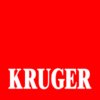
Asked in Kruger Ventilation Industries

Q. How do you utilize quality tools, and can you provide examples?
I utilize various quality tools to ensure product excellence, including statistical methods and process improvement techniques.
Utilize Six Sigma methodologies to reduce defects; for example, applying DMAIC to improve a manufacturing process.
Implement Control Charts to monitor process stability; for instance, tracking the production line's output to identify variations.
Conduct Root Cause Analysis using Fishbone Diagrams to identify underlying issues; for example, analyzing cus...read more
Asked in Deep Auto Electricals

Q. What is 5S ? How to improve you quality of products?
5S is a methodology for workplace organization and standardization. Improving quality involves identifying and eliminating waste.
Sort - separate necessary items from unnecessary ones
Set in order - arrange necessary items in a logical and efficient manner
Shine - clean and inspect the workplace regularly
Standardize - establish procedures and guidelines for maintaining the workplace
Sustain - ensure that the 5S system is continuously implemented and improved
Identify and eliminate...read more

Asked in Molex

Q. Six sigma process, Where Spc will come in Six sigma process
SPC (Statistical Process Control) is a key tool in the Six Sigma process for monitoring and controlling process variation.
SPC is used to collect and analyze data in real-time to ensure that a process is stable and capable of meeting customer requirements.
It involves the use of control charts to monitor process performance and identify any special causes of variation.
SPC helps in identifying and addressing process issues before they result in defects or non-conformance.
By usin...read more
Asked in Elumina eLearning

Q. Types / what is of Funtional Testing & Non Funtional Testing
Functional testing focuses on verifying that the software functions as expected, while non-functional testing focuses on aspects like performance, usability, and security.
Functional testing ensures that the software meets the specified requirements and functions correctly.
Non-functional testing evaluates aspects like performance, usability, reliability, and security.
Examples of functional testing include unit testing, integration testing, and system testing.
Examples of non-fu...read more

Asked in Sansera Engineering

Q. What is 8D and why is it used in the industry?
8D is a problem-solving methodology used in the industry to identify, correct, and prevent recurring problems.
8D stands for Eight Disciplines and is a structured problem-solving approach.
It involves a team-based approach to identify the root cause of a problem, implement corrective actions, and prevent recurrence.
8D is commonly used in industries such as automotive, manufacturing, and aerospace.
The process includes steps like forming a team, defining the problem, implementing...read more
Asked in Real Strips

Q. What is Annealing, Quenching, Acid Pickling, Bright Annealing?
Annealing, quenching, acid pickling, and bright annealing are heat treatment processes used to alter the properties of metals.
Annealing involves heating a metal to a specific temperature and then slowly cooling it to make it softer and more ductile.
Quenching is the rapid cooling of a metal to increase its hardness and strength.
Acid pickling is a process of removing impurities and scale from the surface of a metal using acid solutions.
Bright annealing is a heat treatment proce...read more
Asked in Real Strips

Q. What is the elongation percentage of 316L grade Steel?
The elongation percentage of 316L grade Steel is typically around 55%.
316L grade Steel typically has an elongation percentage of around 55%
Elongation percentage indicates the amount of deformation a material can undergo before breaking
Higher elongation percentage indicates better ductility and toughness of the material
Asked in Real Strips

Q. What is the percentage of Nickel present in 304 Grade Steel?
The percentage of Nickel present in 304 Grade Steel is approximately 8-10%.
304 Grade Steel contains around 8-10% Nickel.
Nickel is added to steel to improve its corrosion resistance.
The exact percentage may vary slightly depending on the specific composition of the steel.

Asked in Montage Enterprises

Q. What is MFI ? What is Density ? What is latest version of ISO ? What is 5-S & Kaizen etc . ?
MFI is Melt Flow Index, Density is mass per unit volume, Latest version of ISO is ISO 9001:2015, 5-S & Kaizen are Lean Manufacturing tools.
Melt Flow Index (MFI) is a measure of the ease of flow of the melt of a thermoplastic polymer.
Density is the mass per unit volume of a substance.
ISO 9001:2015 is the latest version of the ISO 9001 standard for Quality Management Systems.
5-S is a Lean Manufacturing tool that stands for Sort, Set in Order, Shine, Standardize, and Sustain.
Kai...read more
Interview Questions of Similar Designations
Interview Experiences of Popular Companies





Top Interview Questions for Quality Engineer Related Skills

Calculate your in-hand salary
Confused about how your in-hand salary is calculated? Enter your annual salary (CTC) and get your in-hand salary


Reviews
Interviews
Salaries
Users










